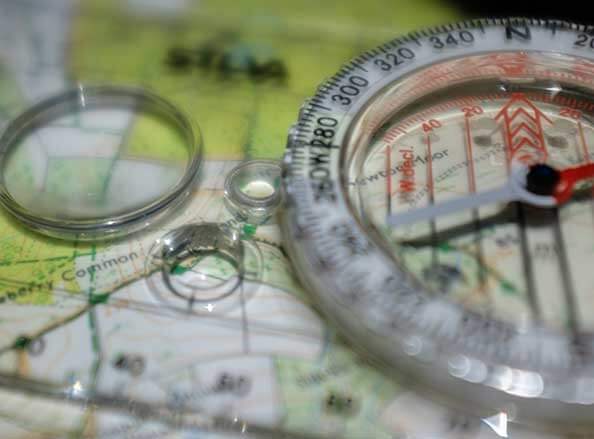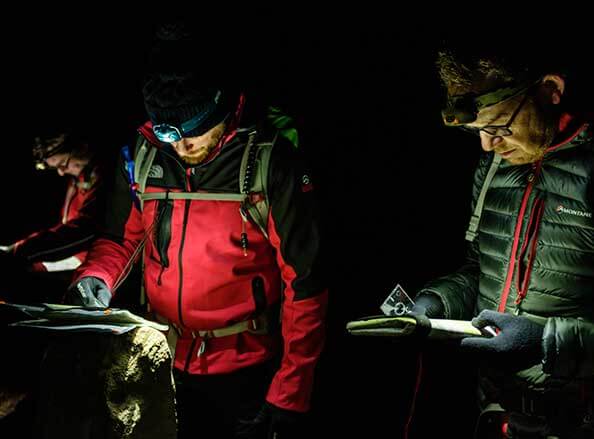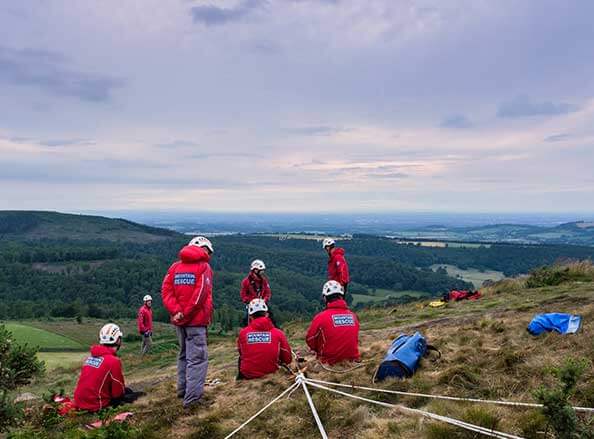
Wear suitable clothing and footwear for the time of year. Be prepared in case weather conditions change, so take warm clothing (windproof and waterproof layers work best). Take spare clothing including gloves and hats.
Footwear should be comfortable and fit properly. It should have a treaded sole and support your ankles. Don’t be tempted to wear new boots to ‘break them in’ – wear them around the house and on shorter walks first.

These are the basics – you should never venture out on the hills without taking these. For example, you might intend being home before dark but if you’re late or get injured that torch will come in useful. Ideally take a head torch and spare batteries. Don’t rely on a mobile phone as a torch!

At night you can follow the same process with a torch as well as a whistle.
Take plenty of food and drink for the day, including high energy snacks. Always carry water – even in cool weather it’s easy to become dehydrated.
Plan your route and tell someone where you are going and what time to expect you back (write it down for them and include your contact details). Let them know if your plans change.
Don’t forget that map and compass (Essential Kit) – a mobile phone or GPS device can help with navigation but if they fail a map and compass will still work.
If you’re not confident with navigating consider enrolling on a basic navigation course. They’re relatively cheap and widely available in our area and a great way of learning a new skill.
If the weather turns against you, be prepared to turn back or take a shorter route – and let someone know that your plans have changed.
A useful website for information is Adventure Smart

Maybe not essential but recommended to contact friends & family or the Police in an emergency. However, we all know that mobile phones are not foolproof so don’t rely on them – we cover large, remote areas and coverage isn’t always available.
Many accidents occur late in the day when you and your phone can be low on energy. So make sure that you charge it before you set off! Ideally carry a portable power bank to charge it.
If you have hearing or speech difficulties, you can contact the 999 emergency services by text. You will only be able to use this service if you are first registered with emergencySMS, so register now — don’t wait for an emergency! Text ‘register’ to 999 then follow the instructions sent. This is also useful if the signal is low and a voice call keeps cutting out – there can be more chance to send a text message.
Two free Apps that you can download to your phone are OS Locate and what3words, but learn how to use them first (rather than trying to work them out in an emergency). Whilst we prefer people to carry a map & compass and know how to use them, each of these Apps can be a useful back-up to identify where you are. But please remember the limitations of using mobile phones for navigation as mentioned above and (again) there is no substitute for a map & compass to give a grid reference.
Learn the basic principles of First Aid – ABC. It could make the difference between life and death for a casualty.
A – Airway
B – Breathing
C – Circulation
Consider enrolling on a Basic Life Support course – they are sometimes provided free of charge by local organisations. For more information check out:
Check you have packed the right gear.
Check that you’ve charged your mobile phone and torch batteries.
Check the weather forecast.
Have you got the knowledge and skills for your intended route?
Applications can be made to join the team in a support role (Operational Support) or as a hill going (Search and Rescue) member.
Applications for either role can be made at any time. Intakes for Operational Support members occur at various times of the year. There is one annual intake for Search and Rescue normally each September.
Join NowThis message is only visible to site admins
Problem displaying Facebook posts.